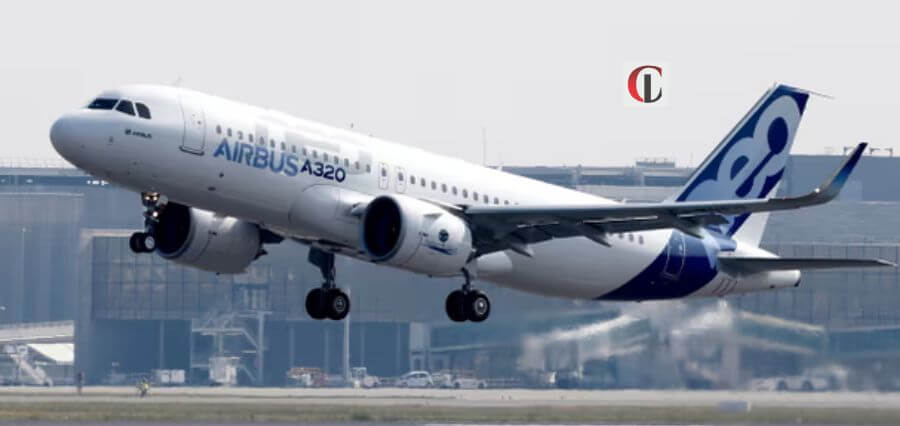The world’s largest aircraft maker blames parts shortages for delays in production of the A320neo. Shares in Airbus tumbled on Tuesday after the aircraft maker cut its profit forecast, citing persistent part shortages that have affected production of its A320neo jets. In an unscheduled update late Monday, Europe’s largest aerospace group revised its delivery forecast downward and delayed the production ramp-up schedule for A320neo planes. Additionally, Airbus took a €900m (£761m) charge for its troubled space activities.
Following the update, Airbus shares dropped almost 10% on Tuesday. The company now anticipates an underlying operating income of €5.5bn this year, falling short of its previous forecast of between €6.5bn and €7bn. This adjustment comes as Airbus estimates it will deliver 770 aircraft this year, down from an earlier forecast of 800, though still an increase from last year’s 735 jets. The company also postponed its target of producing 75 A320neo aircraft per month from 2026 to 2027. Currently, it manufactures about 50 jets per month.
Airbus attributed these challenges to “persistent” and “specific” supply-chain issues, primarily impacting engines, cabin equipment, and aerostructures (components of the airframe such as wings and fuselage). CEO Guillaume Faury commented, “We are facing headwinds right now; we have to bite the bullet.” He noted that engine supplies for the bestselling A320 family of narrow-body jets had significantly worsened in recent months. Faury warned that engine makers might face penalties for delays, particularly highlighting that Rolls-Royce-made engines for the A330neo were behind schedule, though not those for the A350.
Faury also mentioned that shortages of seats and cabin parts presented another “very difficult situation.” The aerospace industry has struggled to rehire workers and stabilize supplies after the Covid-19 pandemic left many suppliers with weakened balance sheets. As the world’s largest aircraft producer, Airbus has been significantly impacted by these issues, while its main U.S. rival Boeing faces regulatory curbs and an internal crisis. Some experts and suppliers, including engine makers, have expressed doubts about Airbus’s ambitious plans.
Faury further stated that uncertainty surrounding the industrial commitments of aerostructures maker Spirit Aerosystems contributed to the revised targets. He declined to comment on an anticipated deal where Airbus might acquire Spirit assets related to the A350 and A220 jet programs as part of a carve-up of the supplier with Boeing, expected in the coming days or weeks. Boeing is reportedly close to a deal to buy back Spirit after the former subsidiary made substantial progress in separate talks with Airbus over a transatlantic breakup of the struggling supplier.
For More Details: https://ciolook.com/

